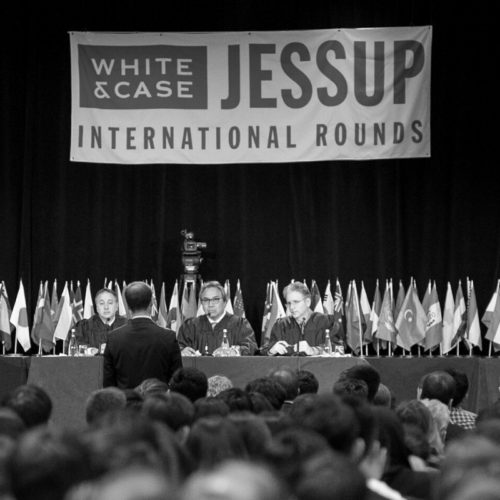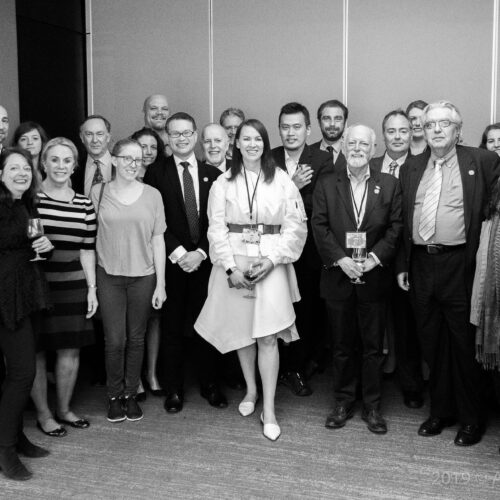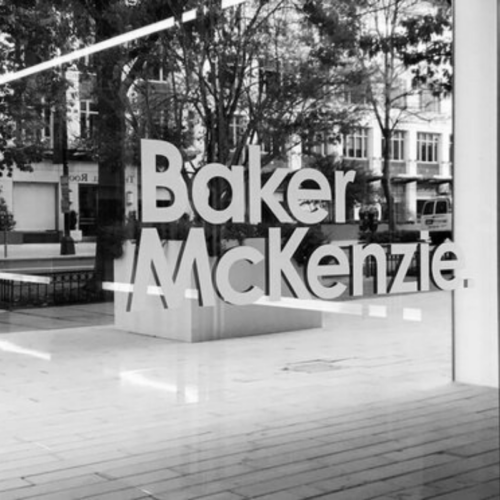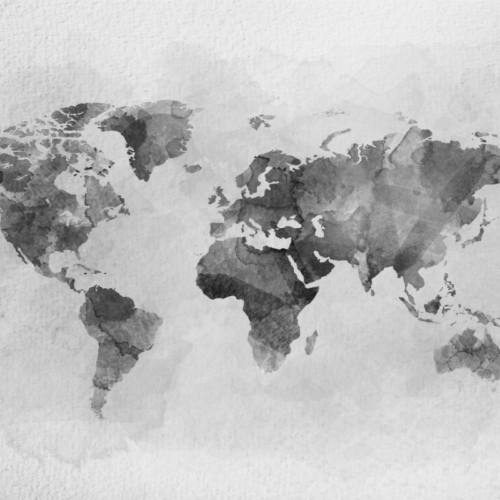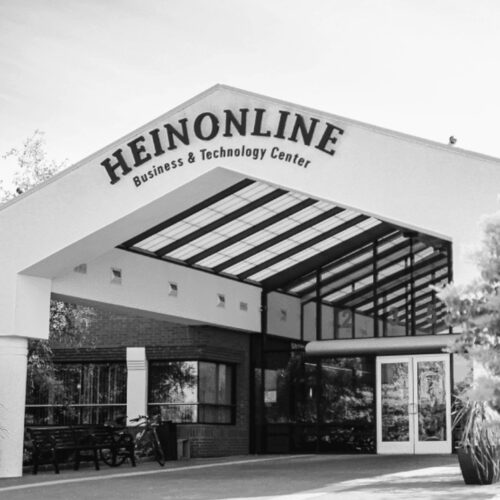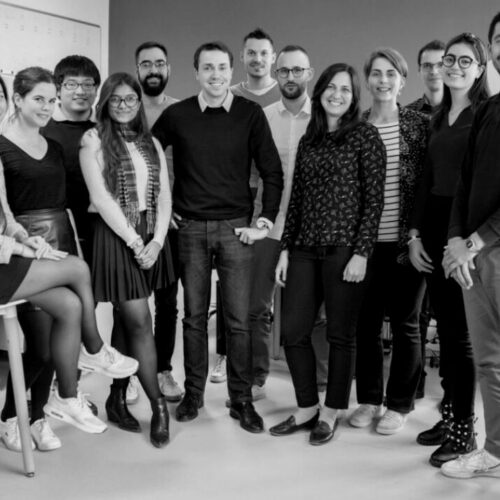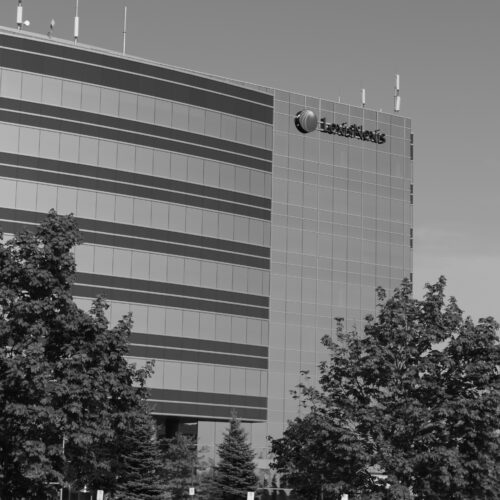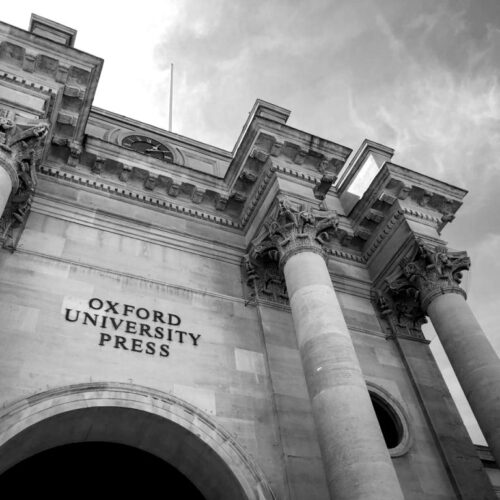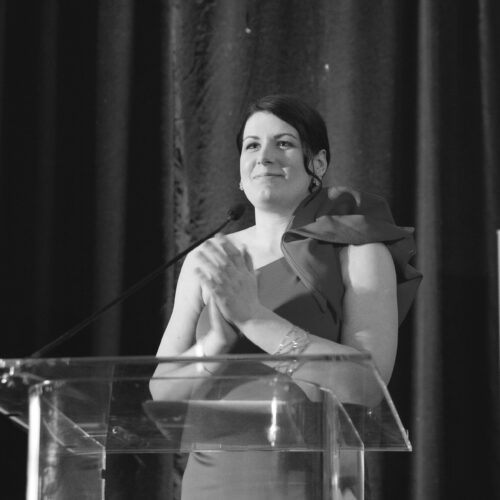About
About the White and Case International Rounds
Welcome to the White & Case International Rounds of the Jessup 2022 Competition. This edition of the International Rounds represents the best 160 Jessup Teams from 85 countries around the globe competing against one another to decide who will be the World Champion and take home the coveted Jessup Cup.
WHERE
Virtual Jessup Competition Platform (Yaatly)
WHEN
Thursday, March 24 –
Sunday, April 10
About the Jessup Competition
The Philip C. Jessup International Law Moot Court Competition was the brainchild of Professor Richard R. Baxter at Harvard Law School, who worked with Professor Stephen M. Schwebel (later President of the International Court of Justice) to create a courtroom simulation experience grounded in international law.
Originally named the “International Law Moot,” the Jessup Competition held its first round at Harvard University on 8 May 1960. The round, comprised only of Harvard Law students, involved a team of two American law students, Thomas J. Farer and William Zabel, and a team of two foreign LL.M. students, Ivan L. Head of Canada and Bernard H. Clark of New Zealand. The first Jessup problem was titled “Cuban Agrarian Reform Case” and was written by then Professor Schwebel. Since 1960, the Jessup Competition has been held annually, and student participation has increased dramatically.
This year’s Jessup Competition has engaged students from over 550 schools in 85 jurisdictions around the world, making the Jessup Competition by far the largest moot court competition in the world.
Former Jessup participants now work at foreign, finance, and justice ministries in increasing numbers. They can also be found in the world’s finest law firms, corporations, universities, parliaments and international organizations. Jessup participants continue to contribute their efforts to the development of international legal education, as well as international law itself.
More than a competition, the Jessup is a community of legal professionals, young and old, who build bonds and share an invaluable cultural and academic exchange. Now in its 63th year, the Jessup has a rich history and a longstanding commitment to promote the importance of the rule of law in the peaceful resolution of disputes.
About the Honorable Philip C. Jessup
The Jessup Competition is named after the Honorable Philip C. Jessup. Born in 1897 in NewYork, Judge Jessup received his bachelor’s degree from Hamilton College and his LL.B. from Yale University. He earned a Master’s degree and Ph.D. from Columbia University and later, an LL.D. from Hamilton.
Judge Jessup had a long and distinguished academic, judicial, and diplomatic career. From 1961 to 1970, he was a member of the International Court of Justice.
He practiced law and taught at several American universities until 1961. Judge Jessup was an assistant to Elihu Root during the 1929 Conference of Jurists on the Permanent Court of International Justice. He attended both the Bretton Woods and San Francisco Conferences, and played a key role in the formation of the International Law Commission (ILC).
Jessup served as American ambassador to the United Nations from 1948 to 1953. He was President of The American Society of International Law from 1954 to 1955, and a member of the Curatorium of the Hague Academy of International Law from 1957 to 1968.
Judge Jessup’s publications include The United States and the World Court (1929); International Security (1935); Elihu Root (1938); International Problems of Governing Mankind (1947); A Modern Law of Nations (1948); and Transnational Law (1956).
In 1964, Judge Jessup was awarded The American Society of International Law’s Manley O. Hudson Medal for preeminent scholarship and achievement in international law and for the promotion of the establishment and maintenance of international relations on the basis of law and justice. Judge Jessup continued to lecture and teach until his death in 1986.
